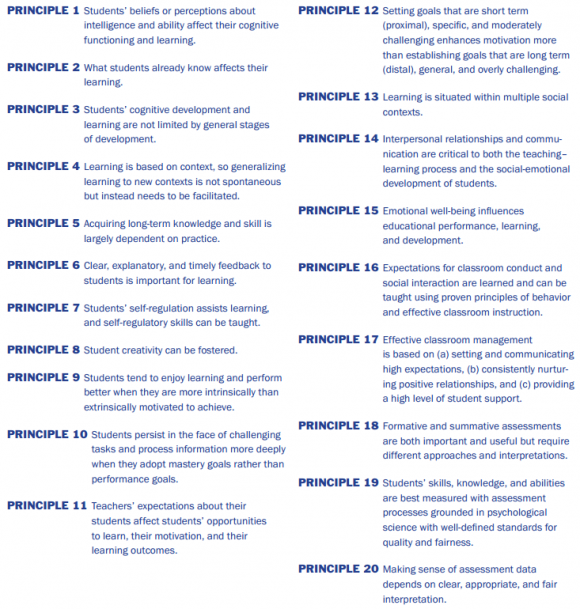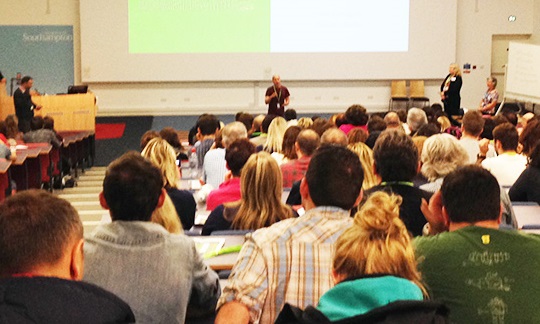The responsibility of leading “Teaching, Learning and Assessment” is a Goliath responsibility. Individually, Teaching, Learning or Assessment all present bespoke challenges, dilemmas and opportunities. Collectively, we can all agree, they impact upon one another. That the inter-play between them is obvious at times, yet subtle, even camouflaged, at others. Hence the recent proliferations and attraction of meta-analysis in teaching and lists purporting to offer an ingredients list of “what works” concerns me.
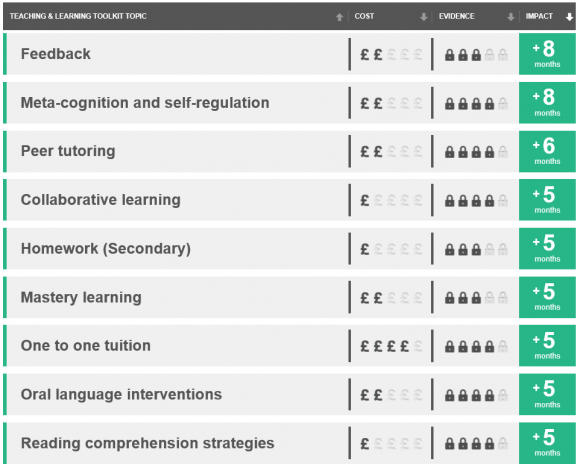
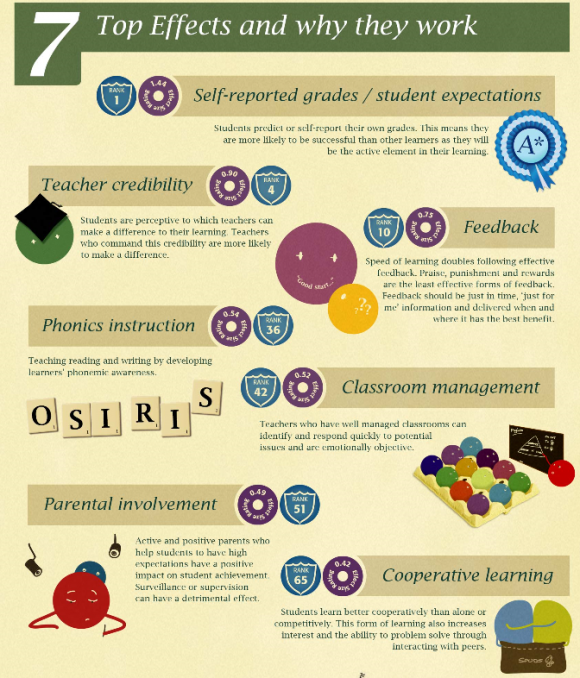
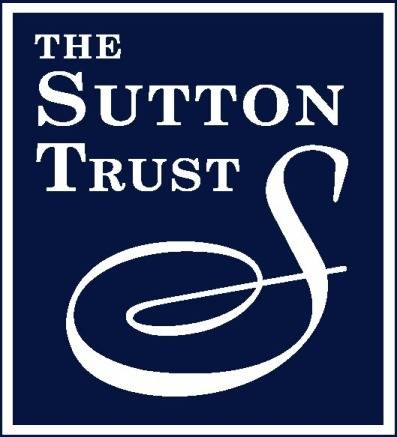
Developing Teachers- Improving professional development for teachers (January 2015)
I am reassured to read that other educators are also expressing their concern (not dismissal) that such “clinical taxonomies,” reduce teaching craft to teaching science checklists. I am weary, as I can appreciate the lure of such checklists to hard working and ambitious teachers, seeking the very best outcomes for their pupils, inadvertently for themselves (PRP). I would have been attracted to such a checklist, the indecent glow of success, drawing me in. Most teachers have experienced teaching the same lesson or series of lessons, to reportedly similar classes. Even where the “context and fit” is remarkably similar, the outcomes can be very different. I am worried, as whilst I am active educational researcher, I believe we are overlooking the importance of “context and fit” of these items to effective teaching when we report a checklist solution.
Over the weekend, I read The Coalition for Psychology for Schools and Education’s new report detailing the most important and useful psychological principles teachers should be aware of, categorised into five groups.
- How Do Students Think and Learn? Principles 1–8
- What Motivates Students? Principles 9–12
- Why Are Social Context, Interpersonal Relationships, and Emotional Well-Being Important to Student Learning? Principles 13–15
- How Can the Classroom Best Be Managed? Principles 16–17
- How to Assess Student Progress? Principles 18–20
It is another list to be aware of and take care when considering the “context and fit” for your pupils and your teaching.
If you appreciate traditional and experience (and I do) it is worth reading Teaching with Pam, one of my favourite teaching checklists. Based not on research but a life-time of teaching. It’s even better if yourself in Pam, teach Science, in a well organised school, with an average APS (27.6) and above average achievement for lower, middle and high ability pupils.
As for magic beans, that was a little disingenuous.
[qr_code_display]

